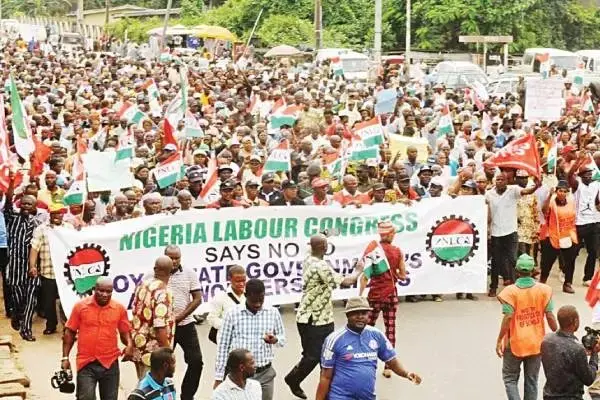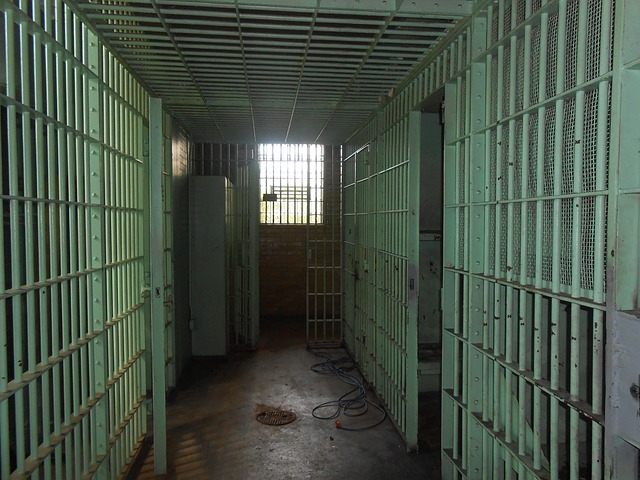A NEW NATIONAL MINIMUM WAGE AND HIKE IN ELECTRICITY TARIFF: WHY ORGANISED LABOUR IS STRIKING
For about eight months now, Organised Labour, the Federal Government, and the Organised Private Sector have been engaged in negotiations for a new national minimum wage. The negotiation for a new national minimum wage finds its roots in law and international treaties, especially the International Labour Organisation (ILO) labour standards which fundamental conventions Nigeria has ratified.
The National Minimum Wage as a Global Standard and Best Practice
The National Minimum Wage is a global standard. It is an international best practice adopted and enshrined in ILO Minimum Wage Fixing Machinery Convention 26 of 1928 and reinforced by Minimum Wage Fixing Convention 131. The national minimum wage is the national benchmark threshold below which no employer of labour can pay a worker. It was also captured in Article Ill subsection (d) of the ILO Philadelphia Declaration which demands that every country pursues…
“policies in regard to wages, earnings, hours and other conditions of work calculated to ensure a just share of fruits of progress to all, and minimum living wage to all employed and in need of such protection”.
The National Minimum Wage is a wage anchor, a safety net, and a denominator to which wages cannot and should not fall below. It is not a gift or largesse from government but a measure to ensure that workers, especially the lowest wage earners are not left behind by market dynamics and the intent to maximise profit by owners of capital.
The Minimum Wage Fixing Machinery Convention 26 was ratified by Nigeria on 16th June 1961. In 1981, Nigeria enacted the National Minimum Wage Act and paid the first minimum wage of N125 (about $188} which in today’s foreign exchange equals N282000. This shows that Nigerian workers have progressively earned backwards to poverty.
The Peril of the Current National Minimum Wage Negotiation
Organised Labour in its first meeting with government proposed a national minimum wage of N615,000. This was based on detailed economic analysis taking into cognisance inflationary trend, prevailing purchasing power parity, and relativity of extant forex to current minimum wage of N30,000. The Federal Government made a counteroffer of N48,000 bereft of supporting data analysis, tables and logic.
Organised Labour in the spirit of collective bargaining reduced its initial demand to N494,000. Sadly, the Federal Government failed to reciprocate this gesture rather made small jumps counter-offer that nestled at N60,000. In the view of Labour, government’s counter-offer mocks the excruciating hardship brought on workers by government’s insensitive and oppressive economic policies including the ill-advised removal of the so-called petrol subsidy, naira devaluation through foreign exchange windows unification, and the recent increase in electricity tariff amidst other harsh monetary and fiscal measures.
In addition to resisting the reversal of electricity tariff, the Federal Government has continued to show contempt for the minimum wage negotiation. While Organised Labour remains open and committed to a bargaining process exemplified by its honouring of last week’s national minimum wage negotiation meeting, the Federal Government demonstrated its contempt for the negotiation process by withdrawing its core negotiating representatives. This insensitivity to workers’ plight has left Organised Labour as the reason for the Monday, 3rd June 2024 nationwide strike action which notice was given on 15th May 2024.
Slave Wage Amidst Excruciating Hardship and Government Profligacy
In the face of galloping inflation marked by unprecedented food inflation of 40% and general inflation of 33% (government sources), there is no gainsaying the fact that Nigerians especially workers are currently living just on the edge. In addition to the historicity of slave wages marked by the continued downturn in the national economy, massive devaluation of the naira, removal of government subsidies, increase in taxation, astronomical hike of the tariff of critical utilities and the combo siege of collapsed public infrastructure and insecurity all over the country, life has become a Hobbesian reality in Nigeria — short, nasty and brutish. This burden is largely borne by workers whose income remains stagnant amidst buffeting increases in the cost of living.
While the Federal Government offers a very paltry sum which in real inflation and naira value is far below the current national minimum wage, in one word – backward increase of the national minimum wage — government has shown a huge appetite for profligacy. On 2nd November 2023, the National Assembly approved the N2.18 trillion 2023 Supplementary Appropriation Bill forwarded to it by President Bola Ahmed Tinubu. The supplementary bill turned out to be a competition for luxury and ostentatious items including a N5 billion yacht, the renovation of the President’s and Vice-President’s residences, billed to gulp N13.5 billion. The “Office of the First Lady,” alien to the constitution, would gulp N1.5 billion. N2.9 billion was budgeted for Presidential Villa SUVs, and another N2.9 billion to replace “operational vehicles, while the Presidential Air Fleet receives N12.5 billion.
On its part, the National Assembly approved about N60 billion for the purchase of the latest Sport Utility Vehicles (SUVs). Many State Governors and their Deputies while in office illegally allocate humungous sums as pension benefits with other exit perks. While the remuneration of public office holders in Nigeria is calculated at parity or even above the wages of their contemporaries outside the country including those of developed economies, Nigerian workers are regaled with tales of government’s inability to pay decent and living wages to workers who are the one who produce the wealth that they squander. This is tragic!
READ ALSO:
- Police demand for N1.5m used in feeding monarch in detention for 3 weeks
- NDDC Boss vows to revisit all abandoned projects in Cross River
- JUST IN: CBN revokes Heritage Bank licence
The current disposition of the Federal Government to the national minimum wage negotiation smacks of a class war indicative of the intents of a privileged few to wilfully pauperise and enslave the masses of our people. This attitude is further exemplified by the failure of the Federal Government to diligently implement the so-called wage award it promised workers as a palliative to petrol price hike. The payments which were made spasmodically have totally dried up since this February.
Nigerian workers have had enough of government’s drive to institutionalise a slave caste system. Nigeria’s independence which was largely procured on the sweat and blood of Nigerian workers guarantees equality for all citizens including workers. We will resist any attempt to use slave wages as an instrument of mass pauperisation. We will continue to resist socio-economic policies cooked in the kitchen of neo-liberalism and neo-colonialism. We will resist the conspiracy of a looting ruling class to give us an identity that impugns the ideals of our founders and satirises the words in the new national anthem.
On 22nd June 1970 at the International Labour Conference, the ILO strengthened the National Minimum Wage by adopting the Minimum Wage Fixing Recommendation 135 whose objectives are as follows:
– Minimum wage fixing should constitute one element in a policy designed to overcome poverty and to ensure the satisfaction of the needs of all workers and their families.
– The fundamental goal of minimum wage fixing should be to give wage earners the necessary social protection net regarding wages.
The foregoing basis for the National Minimum Wage as an International Labour Standard underlines the concept, rationale and logic of using the national minimum wage as an instrument against mass poverty. The national minimum wage is the only labour instrument that ensures that all workers in government, organised private sector, and particularly, the unorganised, the unskilled and the vulnerable in the highly ungoverned space commonly referred to as the “informal economy’, are included and protected by a wage level that ensures their survival.
The Demand of the Organised Labour in Nigeria on the National Minimum Wage Reversal of the Increase in Electricity Tariff
1. Very pertinent is that the current national minimum wage by law expired on 19th April 2024, we DEMAND IMMEDIATE review.
2. Given that the recent hike in electricity tariff, band structure regardless, is a burden that Nigerian businesses and workers cannot afford now, we demand the reversal of the tariff hike. The reason is simple. In light of the excruciating economic conditions where manufacturers are not selling and are piling products in warehouses because buyers do not have the money to buy, businesses cannot afford additional increase in the unit cost of production — a cost that will be ultimately transferred to workers.
From the foregoing, the strike action by Organised Labour is JUSTIFIED. We DEMAND accelerated conclusion of negotiations for a living national minimum wage. We expect support from the private sector whose struggle for enabling business environment we are fighting for.
Comrade Joe Ajaero,
President, NLC.
Comrade Festus Osifo,
President, TUC.




